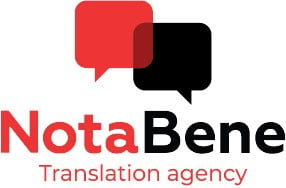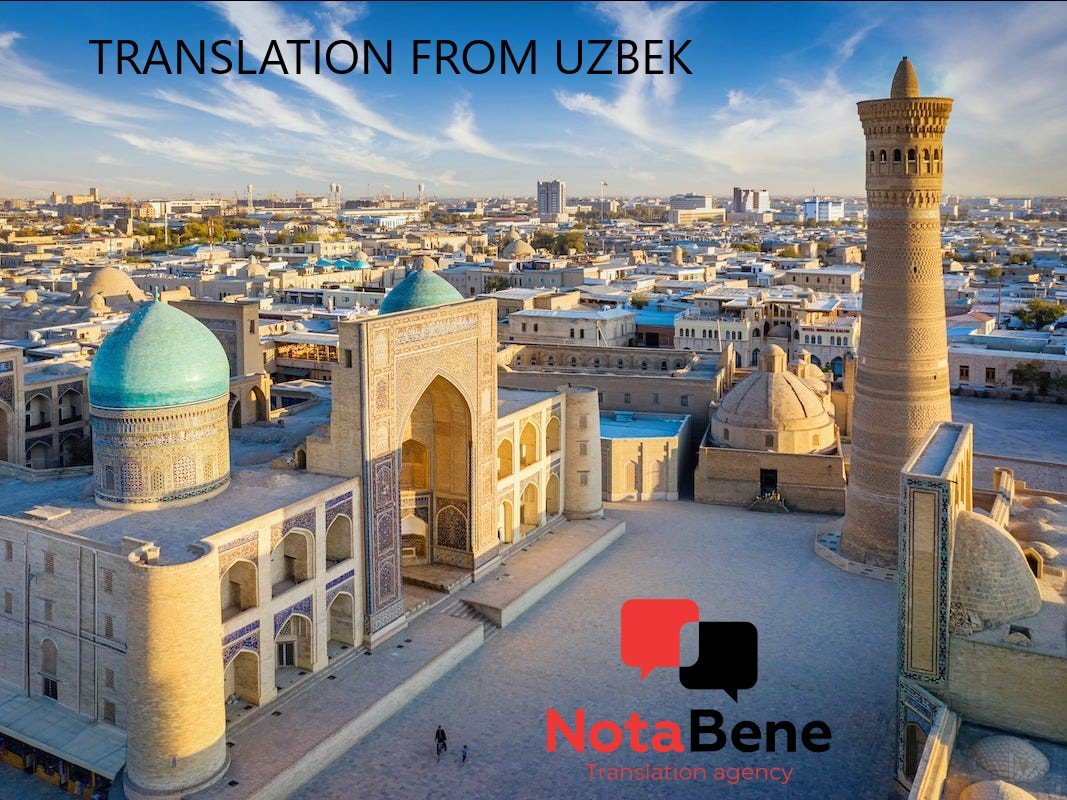Order translation from Uzbek or into Uzbek at NotaBene Agency in Warsaw and Gdansk!
NotaBene Translation Agency is an experienced supplier of translation from Uzbek into Polish and vice versa for any documents or texts.
What types of texts does NotaBene Translation Agency work with?
– Technical translation from Uzbek — we translate any texts in electronics, aviation and shipbuilding, agriculture, industry, oil and chemistry, etc. For this purpose, we pick translators who understand the specific nature of a given industry.
– IT translation from Uzbek for the localization of applications, games, software and websites.
– Medical translation from Uzbek — books, manuals, articles in specialized printed and online publications, clinical records, correspondence with medical institutions, transcriptions and translations of test results, instructions for medicines and many other types of texts. This kind of translation requires flawless knowledge of medical terminology and focus on detail to rule out ambiguity, because the result can affect the health or life of many people.
– Legal translations from Uzbek: statutes, registration deeds, articles of incorporation, contracts, powers of attorney, court records and many other similar documents.
– Financial translation from Uzbek includes the translation of balance sheets, tax returns, payment invoices, waybills, tender documents, etc.
– Literary or fiction translation is the translation of works of fiction, marketing and advertising materials. Unlike the previous types of translation, in this case there is more room for a translator’s creativity, because there is no need for “word for word” translation. The most important thing is that the translated material produces the same impact as the original, while an excellent translation may even make it better.
Please note that the translation mentioned is certified by an agency seal only. If you need sworn translation, kindly notify your manager in advance. Sworn translation is possible only for certain languages.
How to have a translation from Uzbek into English, Russian, Belarusian or Ukrainian into Uzbek ?
First of all, you need to order it. To do so, send your source text and specify your requirements for the translation from Uzbek. A customer service specialist at the Nota Bene Translation Agency will prepare a ToR based on the specific features of the order. If the project involves more than one job, a unique glossary is created to ensure the consistency and proper use of terminology.
An entire team of several professionals normally works on a job: a translator, proofreader, editor, quality controller, layout designer and manager who will be available during working hours. In order to rule out human errors, the translation agency uses modern services to check punctuation, idioms, numerical expressions, and formulas. The material is also reviewed by the chief editor.
Confidentiality of translated data is ensured by a special NDA, whenever a customer wishes to have one. Documents can be delivered to any country.
We very rarely apply additional fees for “urgency” or “specialized subjects”, so you can be sure that the price will not rise when the project is delivered. It is true that in rare cases, such as “we need to have it yesterday” instances, and when a customer is willing to pay a higher rate for the team to work outside normal working hours, at night or on weekends, the fee might be increased, but this is always negotiated with the customer in advance.
The Uzbek language
The Uzbek language belongs to the Altaic group of Indo-European languages and is an official language of the Republic of Uzbekistan. It is one of the most widely spoken Turkic languages.
According to various sources, the number of Uzbek speakers ranges from 21 to 25 million. Most of these people live in Uzbekistan and are native Uzbeks. Besides, the Uzbek language is widespread in Tajikistan, Kyrgyzstan, Kazakhstan, Afghanistan and Turkmenistan.
The Uzbek language dialects are divided into two groups according to pronunciation: those retaining the unstressed “o” (the cities of Tashkent, Samarkand, Bukhara, and other neighboring regions) and those that do not. The literary variety of modern Uzbek is based on the former group of dialects of the Ferghana Basin.
Before 1927, Uzbeks used the Arabic script to write in their language, and after 1927, they changed to the Latin alphabet. In 1940, the Cyrillic alphabet was adapted for notation.
We have been in business for over 20 years and during that time we have learned to work well. Trust us with your project and get a great result at a reasonable price!








